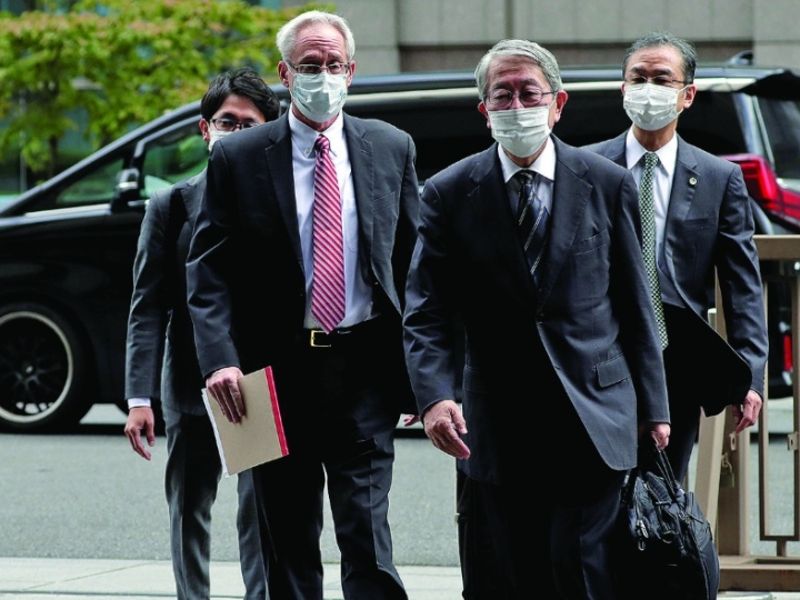
TOKYO — Tokyo prosecutors are seeking a two-year prison sentence for Greg Kelly, the former Nissan director indicted alongside former Chairman Carlos Ghosn for alleged financial misconduct.
Prosecutors made the case against the American defendant on Wednesday as they delivered their closing argument in the long-running trial.
Kelly, who was arrested in Japan nearly three years ago, on Nov. 19, 2018, had faced a maximum penalty of up to 15 years for the alleged violation.
Prosecutors said they sought a two-year prison sentence, mindful of the time Kelly has already spent detained in Japan. After his arrest, Kelly was locked for more than a month in a Tokyo jail before being released on bail. Since then, he has been barred from traveling outside the country.
The trial began Sept. 15, 2020, and Kelly’s lawyer says a verdict is not expected until March 2022.
Kelly’s defense team gives its closing argument on Oct. 27. Then, the matter rests in the hands of the three-judge panel that has been presiding over the case for more than a year.
After the Sept. 29 hearing, Kelly lawyer Yoichi Kitamura attacked the prosecutors’ case, saying that, among other things, they failed to establish a motive for Kelly’s alleged wrongdoing.
“We can refute everything the prosecutors said today,” Kitamura said.
Separately, prosecutors recommended a 200 million yen ($1.8 million) fine for Nissan, which, as a corporate entity, is a co-defendant in the case. Nissan has not contested the charges, which allege that it failed to properly report the full extent of Ghosn’s compensation.
Regarding Kelly, the question facing judges is whether he was part of an under-the-table effort to hide nearly half of Ghosn’s supersized compensation and pay it out to him later.
Prosecutors allege Ghosn, 67, and Kelly, 65, hid some 9.3 billion yen ($84 million) in postponed compensation from 2010 to 2018.
Both men, arrested the same day in 2018, deny any wrongdoing. But after Ghosn fled Japan for Lebanon in 2019, Kelly, his longtime American human resources chief and a former director on the board, was left to fight the charges alone.
Kelly readily admits Ghosn took a massive pay cut — to the tune of around half his salary — in 2010 when Japan’s financial disclosure rules changed. According to Kelly, Ghosn feared that if the true scale of his Nissan paycheck were known, he would face withering backlash in France.
But prosecutors allege Nissan made a deal to pay back that salary shortfall — the amount Ghosn would have earned had he not taken the pay cut — thereby illegally skirting disclosure rules. Kelly counters there was nothing to disclose, partly because no retirement deal was every finalized.
The defense also argues that Kelly was working on a retirement package to be paid in retirement for work done in retirement. As such, the defense maintains, there would be no obligation to disclose the payout — and the charges would be moot. The pay cut Ghosn took, referred to as a shortfall by Kelly, only served as a frame of reference for Ghosn’s expectations.
In closing their case against Kelly, prosecutors said the retirement plans were simply a pretense to compensate Ghosn for the pay cut he took in his last eight years at the helm.
“It is clear that Kelly knew that the shortfall equals postponed remuneration, according to pieces of objective evidence,” the prosecutor said. “Clearly, Kelly’s defense is not acceptable.”

